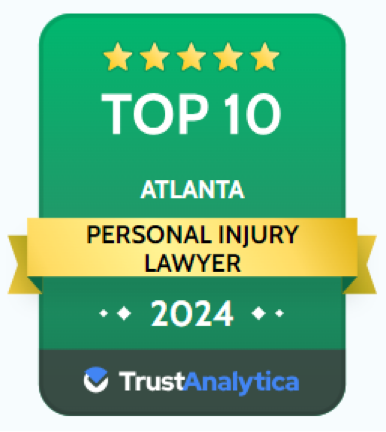All information provided about the law is very general in nature and should not be relied upon as legal advice. Every situation is different and should be analyzed by a lawyer who can provide individualized advice based on the facts involved in your unique situation, and a consideration of all of the nuances of the statutes and case law that apply at the time.
What Happens if You Total a Car? (Financed, Leased, and Insurance Scenarios Explained)
Learn what happens when you total a car, starting with how insurance companies make that determination, the types of insurance coverage available, and why – when dealing with a company concerned about its bottom line — it helps to talk to an attorney.
If you’re lucky, you’ve never waited at an auto repair shop for hours only to hear a mechanic declare your car “totaled.” The word punctuates an already harrowing experience—a totaled car isn’t usually the result of a fender bender. But, if you or a loved one was in a collision or accident, it’s important to seek medical treatment before addressing the vehicle.
Once you’ve recovered from the accident, the uncertainty around your car can take another unwanted toll on your health. If you’re like most, your car is an essential link to your life. Without it, even the simplest tasks become a complicated struggle. So when you hear that your car is totaled, it’s only natural to wonder, “what comes next?”
While the circumstances surrounding your car, your coverage, and your state can all present new questions, there are some basics we can clarify. We’ll help you understand what happens when you total a car, starting with how insurance companies make that determination. There are also important considerations depending on which type of insurance coverage you have and whether your car is owned, financed, or leased. Finally, we’ll explain why – when dealing with a company concerned about its bottom line — it helps to have an attorney concerned about your rights.
When Will Insurance Total a Car?
Every year, Georgia roads see between 300,000 to 400,000 accidents, many of which result in a disabled vehicle, a car that’s unable to drive off from the scene of the accident. However, this is not a question of how much damage to total a car, instead, it’s a question of how much it costs to repair the car. In some states, it’s not a question of when will insurance total a car, but when state law considers the car totaled.
In Alabama, for example, Ala. § 32-8-7(d) states that a car is totaled when the cost to repair a damaged vehicle is greater than or equal to 75% of its fair market value. Essentially, if you have a damaged car worth $10,000, the insurance company will consider it totaled if the cost to repair is or exceeds $7,500.
Meanwhile, in states like Georgia, there is no percentage calculation. This does not mean that if it costs $9,000 to repair a $10,000 car that car is not totaled. Instead, the insurance company may have language in your policy for determining when the vehicle is considered totaled. Scanning your policy for language like “total loss” or “salvage” can help you find that specific calculation.
Is the Insurance Company’s Decision Final?
At first glance it might not seem fair that the insurance company, not you, gets to decide when a vehicle is totaled, especially when the percentage of fair market value is at 75% or lower. The insurance company attempts to justify this decision by arguing that they know based on your make, model, damage, and area of damage, that the costs to repair will be higher than the original quote. They argue that the $7,500 quote will rise above $10,000 once work begins.
While this may not seem fair, the decision to consider the car totaled rests with the insurance company’s appraisers who initially look at the damage to your car, and the cost of the repair from the shop you have chosen to repair your car. If you disagree with that assessment, you’d need to find another repair shop to provide a different quote. Otherwise, the insurance company’s determination will dictate the rest of the process. Your insurance and the insurance company used by the other party could complicate the picture.
Liability Coverage Could Apply
If another driver damaged your vehicle through no fault of your own, that driver’s liability coverage should pay for the damage to your vehicle. If the car is considered a loss, this driver’s coverage should pay for the actual cash value of the car, as discussed below, or to replace the car. It’s important to note, however, that this coverage is limited to the maximum described in the policy.
Why does this limit matter? Consider this: Georgia requires drivers to maintain a minimum of $25,000 in property damage liability per incident. Many drivers may elect to save money on insurance premiums by forgoing coverage at higher thresholds. This means if the driver that damaged your car is only insured up to $25,000, that is the most money that the insurance company will pay out for your property damage, despite potentially having a car being worth more than the limits.
That might not sound like an issue for you, but it can be very hard to get a liable driver to personally pay for damages if yours exceed the limits. In many situations, having a seasoned attorney in your corner can help you fully recover what you’re owed, without the hassle. Your attorney can evaluate if you have additional benefits that can cover your loss, be it collision coverage or gap insurance or forgoing insurance entirely and suing a driver directly.
Collision Coverage Covers First-Party Damage
Drivers avoiding animals or other objects on the road is not uncommon, nor is it uncommon for that maneuver to result in damage. In these situations, drivers with collision coverage can file a claim to have the car replaced or to receive compensation to purchase a similar car.
Comprehensive Coverage May Apply
If the damage to the vehicle was caused by other forces, like a storm, neither liability or collision coverage would apply. Instead, you’d need to check if your policy includes comprehensive coverage. This type of coverage provides reimbursement for damages to your vehicle beyond liability or collision. It’s typically an add-on, so be sure to check your policy declarations page to see if you’ve purchased this coverage.
Uninsured Motorist Property Coverage
Even though minimum liability insurance coverage is required, some drivers fail to purchase or maintain the coverage on their vehicles. If a driver without coverage or without sufficient coverage damages your vehicle, you could look to uninsured motorist property damage coverage. O.C.G.A. § 33-7-11 requires insurance companies to offer this coverage at a minimum of $25,000 per incident. While the insurance companies are required to offer it, you are not required to purchase it. There may also be a deductible for this coverage, so it’s worth looking into your policy first. Shop the rates, often the big name brand companies may not offer the best coverage for you with the cheapest premiums. It may be worth speaking to an attorney about what rates you want so that you can speak to an insurance broker and feel informed and covered when making any insurance decision.
What Happens After a Car is Totaled?
After the insurance company decides that a damaged vehicle is totaled, they will proceed in one of two ways depending on your coverage. They will either pay for the Actual Cash Value (ACV) of your vehicle, or they will replace your car. These procedures should be found in your policy and followed by the insurance company.
Insurance Will Pay Actual Cash Value or Replace
Whether your car was a new model when you first bought it or a used car, the insurance company will offer you compensation based on the car’s value just before the accident. This is known as the Actual Cash Value (ACV) of the car. This money is intended to help you purchase a similar car so you can get back on the road. ‘Similar’ or ‘comparable’ includes the same manufacturer, make, miles, and optional features. The total should also include the taxes and fees you could expect to pay when purchasing that car.
The Replacement method is somewhat more direct. Rather than the insurance company sending you money to go out and purchase a car, they provide one to you. Unlike ACV, the replacement vehicle must be the same model, the same year or newer, with options, body style, and mileage that are similar to your car. The replacement method essentially cuts you out as the middleman but puts a car in your driveway faster.
How Actual Cash Value is Determined
The compensation you receive from the insurance company for a totaled car is based first and foremost on your car’s ACV. That value is essentially an assessment of what your car was worth just before the accident. In Georgia, Ga. Comp. R. & Regs. R. 120-2-52-.06 outlines where insurance companies can look to determine the ACV.
Under this rule, the insurance company can either use traditional car searches or internet databases to identify a replacement vehicle. Traditional methods require insurance companies to look at dealerships, auto sales publications, or newspapers within 50 miles of the county seat where you usually keep your car. If they aren’t able to find a car comparable to yours in the last 30 days, they then expand the search to 100 miles. If that still doesn’t turn up results they can base the car’s ACV on one of two or more quotes from two or more licensed car dealerships within 50 miles.
This process might take more time and effort than you or the dealership are interested in. To speed things up, insurers can also look to reputable online databases of car values, such as Kelly Blue Book or NADA. The insurer must try to keep the search as local as possible and only consider nonlocal values where there aren’t any local options. Which database and how the search is conducted can potentially produce outcomes, so the insurance company should notify you of how they made their calculation.
What Happens if You Total a Financed Car?
A major consideration as you move through the insurance process is, ‘who owns the car?’ You may think this is a fairly obvious question, but many people don’t purchase their cars outright. Instead of paying thousands of dollars upfront, these purchasers finance the car through monthly payments to a lender. Insurance companies, lenders, and dealerships refer to these as financed cars.
The company that offered the loan and put down the money to purchase the car will typically require you to purchase insurance on the vehicle. While the state requires liability coverage, the lender may also require comprehensive coverage, collision, or both. The lender wants you to protect the car because it technically owns it until your loan is paid off.
So, what happens if you total a financed car with full coverage or comprehensive coverage? The process is largely the same as if you owned the car outright. The outcome is where things differ. If you own the car and the claim is approved, the insurance company should send you payment within 10 days of your claim’s approval. What happens when you total a financed car with full coverage? They send the payment to the lender first.
Payment getting sent to the lender first may set off alarm bells if you’re wondering how that helps you get back on the road. In short, it depends. If your car’s ACV is less than your remaining balance on the loan, you will receive whatever is left over. Say your car’s ACV was $10,000 and you had $4,000 left to pay off on your car loan. Your lender would receive the $4,000 and you would receive $6,000. You could then use that $6,000 to pay for another car or as the down payment on a new loan. But what if there’s more owed on the loan than what insurance covers?
What Happens if You Owe More Than ACV?
Finding yourself in a situation where you owe more than your car is worth is not uncommon considering the average age of a car on the road is 14 years and 12 years for pickup trucks. As the car ages, it depreciates in value, while the costs to repair it increase. If your loan agreement was for a long time or had little money down, it’s possible you’ve gone “upside down” on the loan.
If your car is totaled and you still owe money on the loan, insurance will still pay the ACV to your lender. However, you’d still be responsible for paying the remaining balance for that loan. Say your loan balance was $10,000 but the ACV was only $6,000. Insurance will pay the lender $6,000 and you’d be responsible for paying the remaining $4,000. Purchasing gap insurance can help cover the gap that insurance did not cover in your total loss from the loss of value. This is valuable coverage to consider.
The ACV that the insurance company determines is crucially important here, so you want to make sure they’ve got it right. Having a seasoned car accident attorney negotiate with the insurance company can help ensure that you’re getting the right ACV for your vehicle.
In some cases, the lender may allow you to roll the remaining balance into a new loan for another car. This allows you to get driving again with as little of an interruption in your daily routine as possible. It may come at the expense of higher than normal monthly payments until the original balance is paid off, or higher monthly payments throughout the new loan.
What Happens if You Total a Leased Car?
Some drivers prefer to lease rather than finance and purchase cars outright. A lease is a longer-term rental with terms and agreements that must be followed throughout the length of the lease. The upside is that you can drive newer models than you’d otherwise be able to purchase or finance. But what happens when you total a leased car?
What happens when you total a leased car is similar to the outcomes with a financed car. However, a key difference is that the dealership or owner of the lease owns the car. Their ownership stake might mean they get to decide who repairs your vehicle.
The lessor’s ownership of the car in question can muddle the process. Instead of you, the insurance company, and the repair shop discussing options, you now have the added voice of the car’s owner. If you total a leased car, the insurance company will send payment for the ACV to the lessor (the company leasing you the car).
ACV Could Still Be An Issue
Depending on the terms of the lease, it may end up being the case that you still owe money for the remaining term of the lease agreement. Because cars can depreciate in value fairly rapidly, this might happen in the early stages of a lease agreement. Like with a financed car, you will still be required to fulfill your lease obligations and pay the remaining monthly payments.
Some insurance companies offer “gap coverage” to cover the difference—or gap—between the ACV and the remaining balance of your lease or loan. This coverage typically requires that you purchase both comprehensive and collision coverage first. It doesn’t automatically get added on though, so you’ll have to check that you’ve selected it before assuming you have the coverage.
How an Attorney Can Help
What happens if you total a leased car or a financed car can depend on what caused the car to become totaled, who owns the car, the insurance company, and the ACV of the car. One thing is consistent no matter what, though. Neither the insurance company, the lessor or lender, nor even the repair shop have your best interests in mind. These companies are all looking out for their bottom line.
With the deck stacked against you, how do you make sure your rights are protected and your interests are fought for? Start by finding the right car accident attorney. Here’s how having an experienced attorney can help you in the event your leased or financed car is totaled:
- Determine liability: An attorney is also an investigator. When you hire a trusted lawyer, they will investigate your accident and determine who or what is responsible for your injuries and damages. This can help you get what you’re owed and not a penny less.
- Negotiate with insurance companies: There are rules and regulations stipulating what insurance companies should do, and then there’s what insurance companies actually do. Level the playing field and control the negotiating table with an experienced attorney fighting for your rights.
- Advocate for your interests: If insurance companies and negligent actors fail to negotiate in good faith, a dedicated attorney can use litigation to get their client what they’re owed.
Montlick Can Help Ensure a Totaled Car Isn’t a Total Loss
Hearing that news that your car’s been totaled is never easy. Whether the car had sentimental value or not, its loss will be deeply felt. What can be just as painful is finding out that the party that caused the damages doesn’t want to pay, or your insurance company values the car lower than what it’s worth. Before that happens, call Montlick. Our dedicated team of car accident attorneys listen to our clients’ stories and stand up for their rights with the full force of our firm’s 40 years of experience.
Contact us today to see how Montlick can make a difference. Your initial consultation is free.
How useful is this for you?
Would you like to speak with an attorney?
Call NowWe Win More than Settlements.
We win the peace-of-mind you need to get your life back.
At Montlick, we believe comprehensive legal representation is a right, not a privilege. That’s why we provide our services on a contingency fee basis. You only pay when we win.









